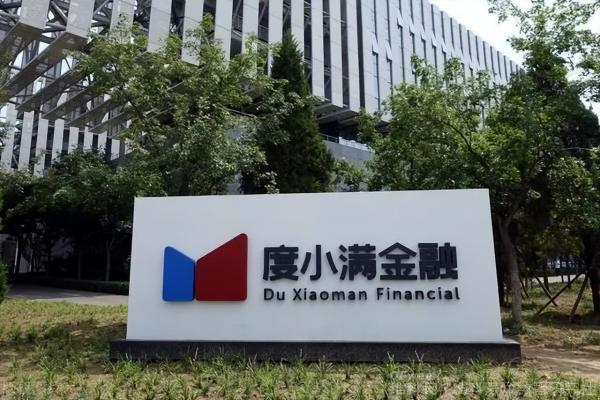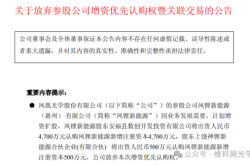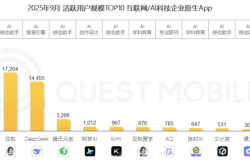"Degraded" Du Xiaoman aims to rely on AI to extricate itself from difficulties
![]() 10/29 2024
10/29 2024
![]() 468
468

It is not an exaggeration to describe Du Xiaoman's six major businesses as "degraded" due to their lack of outstanding features. In this context, the popularity of OpenAI's large model products has sparked global interest, and Du Xiaoman seems to have grasped a new "lifeline," but it remains uncertain whether this will help it extricate itself from difficulties.
If it weren't for recent news of fines, Du Xiaoman seems to have "disappeared" from the internet finance scene for a long time.
Recently, the Beijing Branch of the People's Bank of China disclosed an administrative penalty notice on its official website. Du Xiaoman Payment was warned and fined 1.21 million yuan for six violations, including failing to file its payment service agreement's standard terms, failing to strictly enforce real-name verification requirements for opening payment accounts, illegally opening payment accounts for financial enterprises, processing transfers between payment accounts and non-identical bank accounts, failing to ensure the authenticity, completeness, traceability, and consistency of uploaded transaction information throughout the entire process, and failing to strictly enforce merchant management requirements.
At the same time, a certain Wan, who was serving as the payment manager of Du Xiaoman at the time, was directly responsible for some of the aforementioned violations and was warned and fined 100,000 yuan simultaneously.
Interestingly, the business segment that received the warning and fine was not Du Xiaoman's credit business, which has been a hard-hit area, but rather its payment business. It has always been Du Xiaoman Microcredit, not Du Xiaoman Payment, that has been involved in violent debt collection and frequently complained about by customers.
Public information shows that Du Xiaoman, spun off from Baidu, has developed into a business with six major segments: credit, payment, wealth management, supply chain finance, and more. Although its business departments and categories appear comprehensive, none of its businesses dominate the industry. With mediocre performance, its valuation has continued to decline. In the 2024 Hurun Global Unicorn List, Du Xiaoman ranked 759th with a valuation of only 11 billion yuan. In comparison, Ant Group ranked fourth with a valuation of 570 billion yuan, WeBank ranked tenth with a valuation of 235 billion yuan, and JD Digits tied for 19th with a valuation of 135 billion yuan.
Relying on Baidu's traffic, Du Xiaoman quickly established a foothold in the fintech sector. However, today, Du Xiaoman seems to lack a standout moment, and it is not an exaggeration to describe it as "degraded." Currently, with AI becoming increasingly prevalent, Du Xiaoman has launched large model products in line with this trend, hoping to tell a new story.
Six Major Business Segments "Degraded"
In April 2018, Baidu announced the completion of a split financing agreement for its financial services business group, which was subsequently renamed Du Xiaoman and operated independently. On May 21, 2018, Du Xiaoman was officially established with six major business segments: credit, payment, wealth management, insurance, personal finance, and supply chain finance.
Among these segments, the credit business quickly rose to prominence due to its simple application process, fast disbursement, and flexible borrowing and repayment terms. Coupled with Baidu's traffic recommendations, Du Xiaoman's loan disbursements once ranked among the top three nationwide online lending platforms. By the end of 2022, Du Xiaoman had cumulatively disbursed 2 trillion yuan in credit loans, with 70% going to individual business owners and small and micro-enterprises.
However, amid a shrinking demand, supply shocks, and weakening expectations, small and micro-enterprises and individual business owners are experiencing varying degrees of financial difficulties. In such circumstances, Du Xiaoman's violent debt collection practices have come under criticism.
In terms of wealth management, Du Xiaoman was involved in the 2022 scandal involving rural banks in Henan Province, where it changed the display of depositors' "savings" accounts to "wealth management products," significantly impacting its wealth management business.
In the payment segment, Alipay and WeChat Pay dominate the national mobile payment market, accounting for over 90% of the market share, leaving less than 7% for Du Xiaoman and other players. In the insurance segment, Ant Group, JD Digits, and Suning Insurance occupy the top three positions in internet insurance intermediation services, while Du Xiaoman ranks only fifth.
In supply chain finance, Du Xiaoman does not appear on the list of market share rankings for supply chain finance technology solution providers.
Overall, Du Xiaoman's various businesses perform mediocrely with few highlights. As a result, Du Xiaoman's performance and valuation have declined year after year.
As one of Du Xiaoman's operating entities, Chongqing Du Xiaoman Microcredit Co., Ltd. (hereinafter referred to as "Du Xiaoman Microcredit") reported revenues of 3.018 billion yuan, 2.898 billion yuan, and 1.810 billion yuan from 2021 to 2023, respectively. The revenue decline in 2023 was particularly significant, reaching 37.5%. Net profit decreased from 887 million yuan in 2021 to 212 million yuan in 2023. Total assets also halved from 32.408 billion yuan in 2021 to 19.482 billion yuan in 2023.
Beyond performance, Du Xiaoman's valuation has also declined steadily, from 20 billion yuan in 2019, its first year of independent operation and ranking 84th globally among unicorns, to 11 billion yuan in 2024, dropping to 759th globally.
With declining revenues and net profits, Du Xiaoman's ranking and influence among global unicorns have weakened. Adding to its troubles, Du Xiaoman has been inundated with consumer complaints. According to the Black Cat Complaint Platform, there have been as many as 26,575 complaints involving Du Xiaoman in the past 30 days.
Despite rumors of an IPO since 2021, Du Xiaoman has yet to make it to the stock market.
The AI Story Isn't Easy to Tell
In September this year, OpenAI released GPT-o1, a large model with significantly enhanced "thinking capabilities," capable of complex logical reasoning and problem decomposition.
On the other side of the ocean, Du Xiaoman has also made some innovative explorations in risk control scenarios. For example, in the credit field, the reasoning large model can analyze customers' credit reports and bank statements to deduce their repayment capabilities and ultimately provide risk control decisions on whether to approve their loan applications.
At the Hong Kong FinTech Week on October 28, Zhu Guang, CEO of Du Xiaoman, stated that "the application of new generative AI technologies represented by the o1 reasoning large model in the financial sector will penetrate from peripheral scenarios to core businesses, directly impacting the quality of core decision-making in the financial industry. While bringing significant breakthroughs in product and service experiences for customers, it will reshape the fintech industry."
It's all about scenarios. Regardless of the large model, product research and development are no longer challenging. The primary issue for players now lies in commercialization scenarios. On the one hand, it's difficult to match scenarios with products. On the other hand, many scenarios may not require large model products at all, yet the field is crowded with players offering them.
For Du Xiaoman, its backbone is Baidu, whose core product and scenario are search. In the view of "Digital Intelligence Research Society," the search scenario provides highly targeted traffic but lacks e-commerce transaction scenarios and social platform user stickiness beyond bid ranking and advertising, resulting in limited monetization capabilities. Consequently, with unattractive consumer credit scenarios, Du Xiaoman can only bet on consumer loans and small and micro-enterprise loans.
However, loans extended in such an environment devoid of transaction and credit foundations are bound to pose greater credit risks.
In contrast, Ant Group behind Alibaba and JD Digits under JD.com have vast transaction users and data, providing valuable insights for financial technology platforms and significantly reducing credit risks. Similarly, Tencent boasts a wide range of social users and relationship data, as well as stable user stickiness, facilitating WeBank's business operations.
Now that Du Xiaoman has large model products, its competitors also offer similar offerings. For Du Xiaoman to break through the competition, the challenge is formidable.







